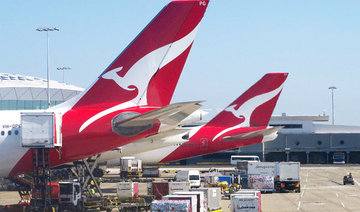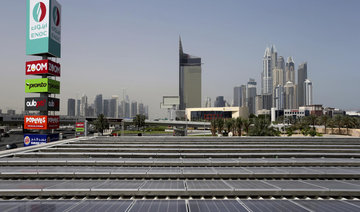The last time Mohammed Al-Shaibani gave a full-length newspaper interview was in late 2010. After a long conversation with the editor of the Financial Times, which highlighted the role he was then playing in the financial restructuring of debt-laden Dubai, the paper teasingly speculated: “Opinion is divided over whether he is a transitional troubleshooter or whether he will become a permanent fixture.”
Seven years on, during a lengthy discussion outside the “Chatham House” rules on the sidelines of a top investment forum in Singapore recently, it is clear that Al-Shaibani is more than just a fixture.
He has in fact become an indispensable part of the executive infrastructure of the emirate, and remains ready and committed to play whatever role Sheikh Mohammed bin Rashid Al-Maktoum, ruler of Dubai, requires of him.
His influence of policymaking and implementation in the emirate is enormous. He is a member of the Supreme Fiscal Committee which coordinates the financial activities of other government departments; he is director general of the Ruler’s Court, which oversees and directs the executive arm of government; and he is chief executive of the Investment Corporation of Dubai (ICD), the multibillion-dollar holding company for the emirate’s most valuable assets and its only real sovereign wealth fund.
Our colleagues in Saudi Arabia are not missing anything. I think they will stick to the plans even if the oil price goes back up to $80 a barrel. The whole of the GCC stands to benefit from a prosperous and successful Saudi Arabia.
He has regularly featured on the Arab world “power lists”, including one that named him the “most influential non-royal official” in the emirate, partly for his role in leading an anti-corruption campaign in the wake of the global financial crisis, which earned him the “troubleshooter” tag.
But he does not foresee an imminent return to troubleshooting in the UAE. The strategy that has served Dubai well for decades — the focus on the three “Ts” of trade, transport and tourism — is resilient and adaptable enough to see it through whatever challenges may surface, he believes.
“The three ‘Ts’ are still the main pillars of our economic strategy, but now we have to take them to the next level,” he said, in an implicit acknowledgement that the tried-and-tested formula for economic development faces a challenge.
Each pillar of the strategy is banging up against market and economic constraints that will require some careful recalibrating in the coming years.
Trade — as exemplified by the port of Jebel Ali where he began his career after graduating in the US — is facing a long-term cyclical downturn in world commerce and increasing competition from other would-be hubs in the Arabian Gulf, as well as the new protectionism in America and Europe.
Transport — symbolized by the rapid expansion of Emirates airline and Dubai International Airport (both owned by ICD) — is also going through a period of readjustment as new business models put the “super-connector hub” strategy under pressure.
Tourism — to Dubai’s glittering five-star hotels and malls — is also feeling the strain of the strong dollar, as well as a general impression that the emirate is simply becoming too expensive to visit, or indeed to do business in.
Al-Shaibani recognizes the pressures on all levels: “The situation at Emirates is challenging, but Emirates will always rise to the occasion, and the super-connection hub strategy is still the key. There will be an update soon on the leadership. The decision will be made by Sheikh Ahmed bin Saeed Al-Maktoum (chairman of the aviation group), and he will chose the best person to do the job,” he said.
On tourism and retailing, Al-Shaibani admits some factors are outside Dubai’s control. “We cannot really control the dollar strength, which has an effect on retail and the hotels. Our job is to control supply, and the government is doing the right thing there. Controlling supply will help control the cost.
“I’m involved directly in this via Kerzner (the global hotel company, part of the ICD portfolio, that owns the Atlantis resort on Dubai’s Palm Jumeirah.) We have been keeping prices under control and offering more product. And the numbers are coming back, both in terms of occupancy and revenue. It is looking quite healthy,” he added.
Dubai finds itself in a quandary regarding hotel supply. It is committed to staging Expo 2020, the global fair, which is expected to attract some 25 million visitors. All those guests will require hotel accommodation, of course, and the risk is that a glut of hotel rooms will be left behind after the event.
But the emirate has a wider goal of attracting 20 million visitors a year by 2020, and Al-Shaibani said there are risk plans in place to ensure “legacy” use of the Expo facilities.
On the suggestion that Dubai may be making itself too expensive in a very competitive global market, Al-Shaibani is realistic and pragmatic. “We are aware of this possibility and are looking out for the factors that may increase costs. All factors that add to cost have to go through an assessment and are debated at the Executive Council,” he said.
Nonetheless, Dubai consumers are in for a jolt next year, when the Gulf Cooperation Council (GCC) countries plan a more-or-less coordinated introduction of value added tax (VAT) across the region. There has been speculation some member countries wanted a higher rate than the 5 percent so far agreed, but Al-Shaibani insists: “The GCC is committed to VAT, at a 5 percent minimum. The UAE is committed to 5 percent.”
The introduction of VAT is part of a broader strategy by GCC countries to reduce dependence on energy revenue and become more “normal” economies in line with global standards. At the same time, low oil prices have put a strain on public finances in a region not accustomed to dealing with budget deficits in the era of $100-plus crude.
Dubai was one of the few parts of the GCC that faced severe budget difficulties during the global financial crisis, and can offer some lessons on debt management.
Al-Shaibani was a leading part of the team that tackled that crisis, renegotiating debts amounting to $25 billion from the Dubai World conglomerate where he is still a director. He concedes that Dubai Inc. made mistakes in the run up to the financial crisis, mainly in abandoning the basics of good financial discipline and expanding too fast overseas. But he also takes satisfaction in the fact that the Dubai World obligations were renegotiated and restructured quickly, with the support of bank creditors.
Some of that debt is now coming up for renegotiation or repayment again, both at Dubai World and at Dubai Holding, another big government holding company that recently underwent a change of executive personnel.
“For Dubai Inc., there are still some big maturities coming up. The financial planning is going well, and we have healthy liquidity. For the past six years, we have met every maturity and paid ahead of schedule. Dubai World paid ahead of schedule.
“Dubai Holding is part of the overall strategy and they will meet their obligations. With a new chairman there will be a new dose of energy. This is a second generation of management coming with a fresh mindset and looking forward to taking Dubai Holding to the next stage,” he said.
There have been reports that Dubai is looking to raise money on the international bond markets to plug any deficit that might occur while those obligations are being repaid.
The visit to Singapore was by no means Al-Shaibani’s first trip to the island city-state. As with many leaders of Dubai, Singapore was seen as an exemplary development model, and he worked there as an investment adviser for the Dubai government during the 1990s, before heading to London to run the ruler’s private office there.
Al-Shaibani visits the island regularly to meet with leaders of the big sovereign wealth funds based there, but this time has traveled mainly to attend an investment forum of Gateway Partners, a Dubai-based private equity investment group which counts him as chairman of its advisory board.
The forum included some of the wealthiest and most powerful men in Asian and African business, like Aliko Dangote, the founder of Nigeria’s Dangote conglomerate, once dubbed by Forbes magazine as the “richest man in Africa”. (ICD is a major investor in Dangote’s cement business). Noel Tata, managing director of Tata International, the multibillion-dollar Indian conglomerate, was also present at an event presided over by V Shankar, the former Middle East boss of Standard Chartered, now chief executive of Gateway.
This elite gathering of investors wanted to hear Al-Shaibani’s views on many other issues as well as the Dubai economy, including the momentous changes underway in Saudi Arabia. How did he rate the chances of success of the Vision 2030 transformation strategy to reduce oil dependence and increase the role of the private sector in the country?
“Our colleagues in Saudi Arabia are not missing anything. They have the ability to lead the region if they stick to their plans, and on a personal level, I think they will stick to the plans even if the oil price goes back up to $80 a barrel. There are huge opportunities in every aspect of their lives, and their success will pull us all up. The whole of the GCC stands to benefit from a prosperous and successful Saudi Arabia,” he said.
Does he think the big privatization program underway in the Kingdom might tempt other Gulf governments, like that of Dubai, to rethink their hesitation over privatizing state-owned assets, the so-called “crown jewels”?
He thought hard before answering. “It is still a challenge to sell state assets. We are still in a growth phase and we have no need for the capital. So it is hard to justify selling assets at these levels. But when the time is right, we’ll consider it. I don’t want to give up value. Businesses like aviation, duty free (retailing) and DEWA (the Dubai energy utility), for example, all have the potential to be listed, but are still in a steep growth phase,” he said.
The Gateway forum spent some time considering the implications for global relations and business of the presidency of Donald Trump, and Al-Shaibani’s views were sought as a representative of the Middle East.
Like many Arab leaders, he welcomed the new stance from the US, but acknowledged that Trump’s controversial views on issues like immigration had generated some criticism.
“The American people are very special in a way. They can listen to a lot of comments from foreigners about their politics and their leaders with an open heart. I cannot imagine that happening in most other countries,” he said.
“But I feel the time for decisive leadership is now in the Middle East. It is critical we have leadership, in politics, just like in business. There was a lot of postponement and delay under President Obama, and that was not a good thing. On North Korea, he just pressed on with the same policy for eight years.
“Now, with Trump in power, we are counting on the US having a strong vision on Korea, but also toward Syria and Iran. We would like the US to step up to be the gamekeeper in the region.
“We respect Iran, they are proud people and our neighbors in the Gulf. But the leadership there is only thinking of their own agenda. They just have to stop interfering in other countries’ affairs. In Iraq, Syria and Yemen, people have suffered enough,” he said, with finality.
You get the sense that troubleshooting is not entirely off Al-Shaibani’s agenda.
BIOGRAPHY
BORN:
1964, Dubai
EDUCATION:
UAE and US, Bachelor of Computer Science
EARLY EMPLOYMENT:
Dubai Ports Authority and Jebel Ali Free Zone
Managing director, Al Khaleej investments, Singapore
GOVERNMENT ROLES:
President of the Dubai Office, London
Member of Dubai Executive Council
Vice-chairman of the Supreme Fiscal Committee
Director General of Dubai Ruler’s Court
Chief Executive Investment Corporation of Dubai
Deputy chairman on hosting Expo 2020
OTHER:
Chairman of Dubai Islamic Bank
Chairman of Kerzner International
Director Dubai World
Director Dubai Aerospace Enterprise




















